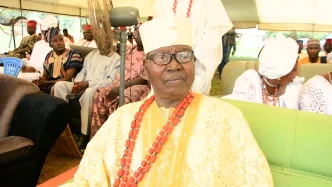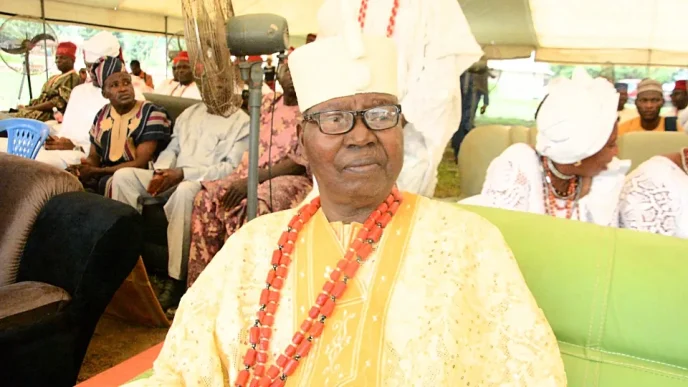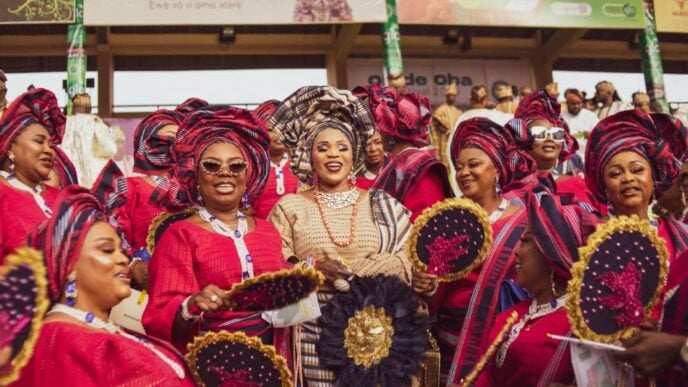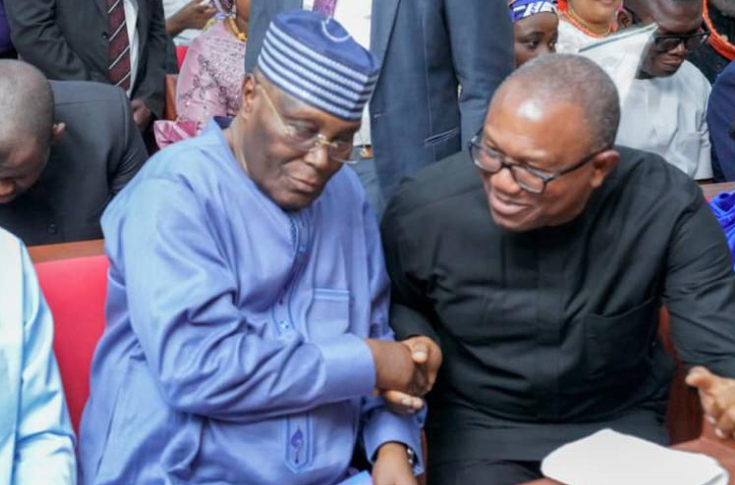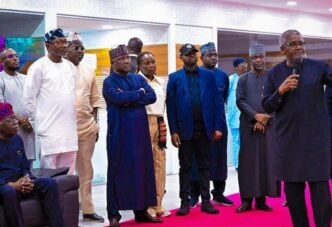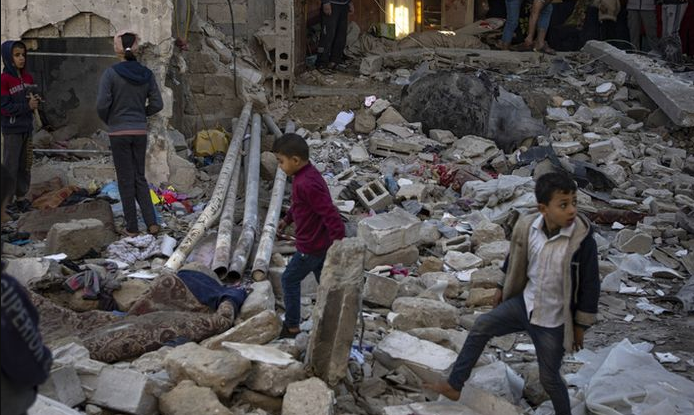BY JOSHUA OLUFEMI
Last week in Lagos, I attended a gathering of civil society leaders focused on safety and security across Nigeria. The meeting was both thoughtful and engaging, showcasing various case studies and interventions that highlighted the progress we’ve made as a sector while underscoring the considerable work still ahead.
During one session, a representative from a Niger Delta community shared their innovative use of loudspeakers to broadcast messages of peace and reconstruction throughout their town. It was a clever solution to the challenge of effective peace communication, especially in rural areas.
After that session, an Executive Director remarked that the loudspeaker project was the most impressive element of his day. I couldn’t help but smile. After the meeting, I approached him and revealed that the “highlight” he commended was a project I had led as a project officer over a decade ago. It involved establishing Information Resource Centres in several communities in the Niger Delta as part of the Tomorrow is a New Day initiative, funded by Search for Common Ground with support from the European Union. At that time, I was with the Institute for Media and Society, collaborating with organisations like the Stakeholder Democracy Network, Lite Africa, and the Centre for Environment, Human Rights and Development (CEHRD) to implement the project.
Advertisement
That moment resonated with me deeply and exposed a troubling reality within our sector. Too many impactful interventions are devoid of institutional memory, lacking any digital footprint or acknowledgement in the evolving history of social change in Nigeria. This absence of documentation often leads new actors to tackle long-standing issues as if they were entirely new challenges. The repercussions include not only duplicated efforts but also missed opportunities to build upon existing work.
Moreover, I’ve noticed a concerning trend where young organisations launch initiatives touted as pioneering and innovative, which mirror past efforts. This illusion of originality fosters a narrative that dismisses the contributions of predecessors, leading to a misguided perception that only current initiatives hold value. It blinds us to the importance of scaling proven models instead of continually reinventing the wheel.
This situation hampers our ability to consolidate knowledge and enhance our impact. Critical lessons are lost, and resources are squandered. Communities find themselves ensnared in a cycle of repeated interventions, often led by different organisations addressing the same issues without any coordination or ongoing support. I recall an instance where one organisation engaged a community on safety and reconciliation, only for a different organisation to approach the same community years later with a similar proposal, oblivious to the earlier work. For community members, this leads to intervention fatigue; they begin to wonder if we, as practitioners, ever communicate with one another. Instead of fostering meaningful impact, they experience a revolving door of well-meaning visitors, each eager to leave their mark, however transient.
Advertisement
One reason the Tomorrow is a New Day project remains vividly etched in my memory is that it marked my first significant encounter with how community radio and youth-led storytelling foster true peace and reconstruction mechanisms. It united major stakeholders to tackle a complex problem through an innovative, dialogue-driven approach. Beyond its scale, what lingered were the human experiences, the raw interactions, and the memories that continue to shape my perspective on civil society today.
Throughout our journey across riverine areas from Gokana to Gbaramatu using boats and navigating tense zones with military presence, we engaged with communities like Oporoza, Koko Kaiama, Amassoma, Kpor and Okirika, each bearing their visible scars. I remember feeling an energy fueled by their humanity, navigating the awkward pauses and strained laughter of individuals striving to find their footing in fractured systems, all while our community radio initiative aimed to foster trust among citizens, government, and civil society—an essential step toward rebuilding after years of unrest and neglect.
During the meeting in Lagos, another participant referred to local agitators in the Niger Delta as “criminals.” The same elder I mentioned earlier remained silent, his eyes sharp with memory. I felt compelled to intervene. “You need to listen before designing interventions,” I said. To the community, these individuals were not criminals; they were kin and were referred to as their “freedom fighters”.
This reminded me of the feeling I had standing by the grave of Isaac Adaka Boro, a man who dedicated his life to the pursuit of justice. A weathered elder who marched alongside him shared stories resonating with reverence. I murmured to my boss, “We need to capture this—now”, as he was the only living witness at the time. This instinct to preserve the past and weave oral history into the fabric of institutional learning has stayed with me.
Advertisement
This theme—of forgotten memory and erased legacies—permeates my journey through various organisations, including the Institute for Media and Society, Nigeria Leadership Initiative, Light Behind Bars, the Centre for Journalism Innovation and Development, and now Dataphyte. Each experience has exposed the tragic amnesia within our sector. There is no shared repository, no collective record of civil society’s contributions in Nigeria. Only scattered reports, donor logframes, and the fading memories of overworked founders.
The importance of this theme is profound. In discussions with civil society leaders and reflecting on my experiences, from the Institute for Media and Society to my current role at Dataphyte, I see the repercussions of failing to document our work. There is no easily accessible, centralised account of civil society’s efforts; no platform where new thinkers, leaders, and the public can trace past initiatives, learn from them, and build on prior successes.
What we need is something more intentional: a living knowledge platform, more than donor-focused reporting tools or project-specific archives. We require robust internal systems or collaborative partnerships that facilitate knowledge preservation beyond project cycles. One contender and promising initiative is the MacArthur-supported database managed by the Shehu Yar’Adua Centre, though it remains project-specific and requires evolution.
We must also engage the voices of citizens who have benefited from civil society interventions, encouraging them to share their stories. Local and international philanthropies should support efforts to catalogue, curate, and archive these engagements. We must confront the rising narrative that paints civil society as a mere playground for foreign agents. Many of us have dedicated our lives to this work, often underfunded, unrecognised, and misrepresented. That narrative must change.
Advertisement
During the Tomorrow is a New Day initiative, young people learned the importance of documenting community resilience, their stories planting the seeds of reconciliation and recovery. This need for documentation extends beyond the Niger Delta; across Nigeria, there are narratives of justice technology providing inmates second chances, grassroots organisations transforming communities, and gender inclusion movements building on the foundations laid by pioneers like PRAWA and WARDC respectively, even if their contributions are no longer cited.
In another casual conversation with a colleague after the meeting, I mentioned my earlier initiative, Light Behind Bars, a social rehabilitation project I led years ago. To my surprise, the individual looked blank and replied, I had never heard of it. This revelation startled me; the project has a functional platform and a presence in past conversations around prison reform and inmate reintegration. If someone were conducting baseline research or mapping the sector, Light Behind Bars would have surfaced even though it.
Advertisement
This exchange underscored the pressing need to establish institutional memory within civil society. We must acknowledge those who came before us. We must share their stories and develop the tools to ensure they never go unremembered. Documentation goes beyond nostalgia; it equips future generations, facilitates continuity, and even enables artificial intelligence to better grasp the civil society ecosystem in Nigeria.
This drive to document and preserve memory resonated further for me over the weekend, when Archivi.ng’s X handle brought me face-to-face with 1998’s editions of TELL Magazine, a publication renowned for its incisive narratives on politics and power. The edition chronicled Nigeria’s then-military dictator, Sani Abacha’s death, exploring the roles various figures played during that critical time. The writing was visceral; the archive became a time capsule. In that moment, I was reminded that technology not only aids us in remembering—it allows us to relive, reevaluate, and reimagine. It offers memoirs, context, and a foundation for continuity and change.
Advertisement
It speaks volumes that even the Nigerian civil society desperately needs institutional memory systems that can inform not only new strategies but also technological innovation. Technology helps to distribute and document. Yet, documentation should not only serve to remember but to empower us to act more effectively.
An important initiative led by Jude Ilo, a respected figure in the sector, published a book compiling case studies of Nigerian civil society work. I eagerly anticipate the second edition. His efforts represent what we need: a structured, intentional approach to preserving and disseminating knowledge across time and space.
Advertisement
As I departed Lagos, I recognised it as a moment of personal reflection. I contemplated the impact of my work and the broader arc it has shaped. The community loudspeaker initiative wasn’t merely a local triumph; it played a role, along with other efforts by the Institute for Media and Society and our partners, in the eventual adoption of Nigeria’s community radio policy. This policy allowed the licensing of between six and seventeen community radio stations, which continue to amplify the voices of underserved communities across the nation.
In an era where technology offers us new means of remembrance, collaboration, and amplification, failing to invest in mapping our past can have dire consequences. For every new initiative launched today, there may be several preceding examples that could refine its purpose, broaden its reach, or safeguard it from failure. We owe it to ourselves and the communities we serve to remember what has been accomplished.
If this moment has taught me anything, it’s that the past holds power, not just as memory, but as guidance. We need a shared space where civil society endeavours, regardless of their size or age, can be documented and made accessible. A platform where stories, impacts, lessons, and even missteps can persist, teaching, inspiring, and guiding new stakeholders. When communities remember, they learn to trust again. When organisations remember, they can forge stronger paths forward.
Technology provides us with the remarkable opportunity to retain our work and make it valuable for the future. We must leverage it carefully to connect the dots, prevent redundant efforts, and build upon what has already been established. The future will thank us for our commitment to remembering, for when we neglect documentation, we don’t just forget; we dishonour, erase, and risk constructing futures on unstable ground. The time to remember is now, not for sentimentality, but for strategy, truth, and the promise of tomorrow.
Joshua Olufemi is the founder of Dataphyte and Goloka Analytics. He is passionate and committed to media innovation, management and revenue sustainability in Africa.
Views expressed by contributors are strictly personal and not of TheCable.



